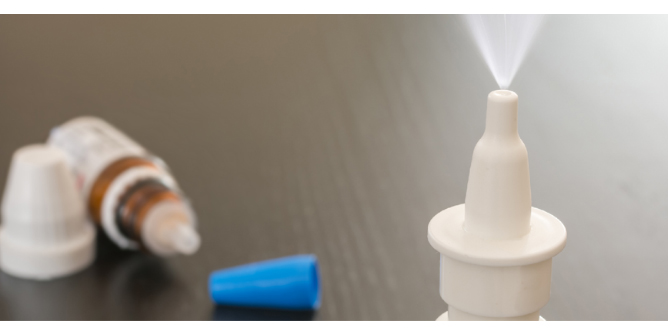
Stimate Recall Update – CSL Behring & Ferring Pharmaceuticals Response to HFA-NHF Letter, Voluntary Recall Due to “Superpotency”
Ferring Pharmaceuticals issued a voluntary recall of Stimate (desmopressin) nasal spray due to “superpotency” – in other words, amounts of desmopressin being higher than specified. Stimate is used to treat von Willebrand disease (VWD) and mild hemophilia A. It is licensed and distributed by CSL Behring in the US. Ferring has halted production of Stimate while investigating the root cause.
NHF and HFA notified the bleeding disorders community as soon as we learned of the recall on July 21, and NHF’s MASAC issued a Medical Advisory alert to the community on July 22. One day later, HFA and NHF sent a joint letter to Ferring Pharmaceuticals and CSL Behring, requesting answers to questions that included:
- How did the product deviation occur, and how was it discovered?
- What are the risks to patients who use the affected product?
- Has either company received any adverse effect notifications in the US or overseas?
- How do the companies account for the fact that the product was distributed for over two years before the problem was detected?
- How do the companies explain their delay in notifying U.S. customers of the recall (up to 10 days after recalls were announced in other countries)? and
- How do the companies plan to accomplish the recall and to make sure that information about the recall reaches those who need to know, both patients and providers?
On July 30th, NHF and HFA received a joint communication from CSL Behring and Ferring that addressed some, but not all of the questions posed in the letter.
In the letter, CSL Behring and Ferring stated that “routine testing obtained out-of-specification assay results in some vials of desmopressin nasal spray product marketed outside the US. The assay identified the potential for higher concentrations of desmopressin in some vials. The root cause of the deviation is under investigation.” On the issue of risks to patients, they said, “there is a reasonable probability that the continued use of certain defective units of this product could pose a health hazard and may cause adverse consequences.” They also informed NHF and HFA that they have not received an increase in the number of notifications of adverse events from users of the product. The companies stated they were following all US Food and Drug Administration guidelines for product recalls, although an FDA MedWatch Safety Alert was only posted to the FDA’s website on August 5th. The companies’ letter can be read here.
The issues that were not addressed in the response include why there was a delay in notifying US customers of the recall in contrast to those overseas, the fact that the affected vials have been in distribution for more than two years, and details on how the recall will be accomplished and what options are available for people who use the product. They also provided no timeline for their internal investigation, when production is expected to resume, and how the recall will affect the global supply of their products. In response to inquiries from World Federation of Hemophilia, Ferring informed WFH it “does not have a timeline for product availability and cannot say when/if Octim/Octostim will be available again.” (Octim and Octostim are the brand names used for Ferring-manufactured desmopressin nasal spray in other countries.)
“These actions to date fall far short of the expectations articulated at the January 2020 Bleeding Disorders Products Safety Summit,” said Nathan Schaefer, VP of public policy at NHF. One of the key takeaways agreed on by the participants of the Summit (which included representatives from CSL Behring) was that pharmaceutical companies should “provide accurate, timely, and transparent guidance and information about safety issues to all stakeholder groups.” Ferring released a press statement regarding the recall on August 5th, a full two weeks after the recall was initiated.
Another takeaway was that drug manufacturers, when communicating with patient organizations about product safety issues, should provide their written communications on official letterhead. These expectations were not met in the present case.
NHF and HFA have reiterated their need for a more complete response from Ferring and CSL Behring so that we can update impacted community members.
“VWD is the most common bleeding disorder in the US and the world,” said Sonji Wilkes, senior director of policy and advocacy at HFA. “The lack of information surrounding the circumstances of this recall and next steps for patients will leave thousands of our community members with unanswered questions about the safety and availability of their medication.”